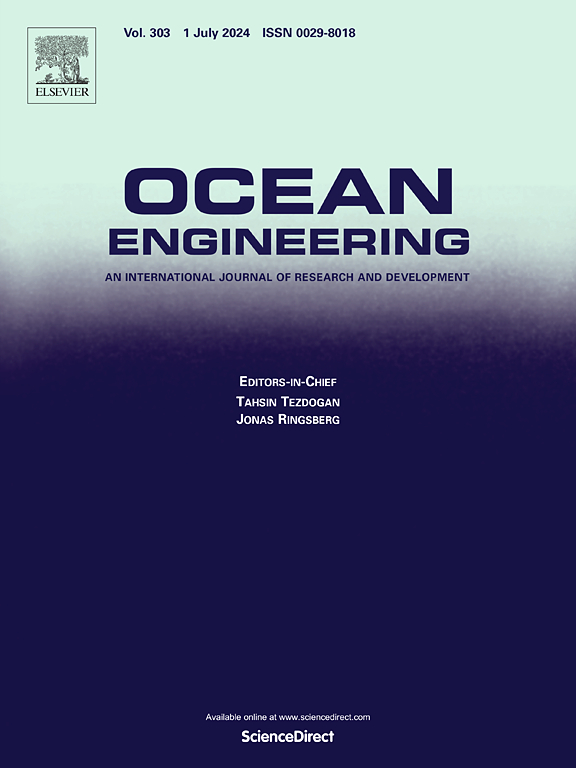Bayesian deep learning based semantic segmentation for unmanned surface vehicles in uncertain marine environments
IF 4.6
2区 工程技术
Q1 ENGINEERING, CIVIL
引用次数: 0
Abstract
Unmanned Surface Vehicles (USVs) face challenges in complex marine environments due to the diversity and unpredictability of obstacles. These challenges are exacerbated by the limited availability of marine semantic segmentation datasets. To address these issues, this work aims to investigate the potential of a Bayesian deep learning-based semantic segmentation approach to improve obstacle recognition and uncertainty estimation. Specifically, Bayesian SegNet is employed to better handle uncertainties arising from environmental changes and model parameters. By estimating uncertainties, USVs can navigate and avoid obstacles more effectively, even in novel environments. Given the scarcity of USV-specific datasets, a stepwise learning strategy is implemented, where training is conducted on the MaSTr1325 dataset, and testing is performed using both the MaSTr1325 and OASIs datasets. This strategy enhances the model’s ability to generalise to real-world scenarios. Experimental results demonstrate that Bayesian SegNet significantly outperforms non-Bayesian models, achieving a 1.3 % increase in precision and a 6.5 % improvement in score in marine environments. Additionally, Bayesian SegNet exhibits superior uncertainty estimation and generalisation capabilities, with a notable 39.77 % higher score on the OASIs dataset compared to traditional SegNet, highlighting its effectiveness in improving semantic segmentation accuracy in USV navigation tasks.
基于贝叶斯深度学习的不确定海洋环境下无人水面航行器语义分割
由于障碍物的多样性和不可预测性,无人水面航行器(usv)在复杂的海洋环境中面临着挑战。海洋语义分割数据集的有限可用性加剧了这些挑战。为了解决这些问题,本工作旨在研究基于贝叶斯深度学习的语义分割方法的潜力,以改善障碍识别和不确定性估计。具体来说,贝叶斯SegNet可以更好地处理环境变化和模型参数带来的不确定性。通过估计不确定性,usv可以更有效地导航和避开障碍物,即使在新的环境中也是如此。考虑到usv特定数据集的稀缺性,实现了逐步学习策略,其中在MaSTr1325数据集上进行训练,并使用MaSTr1325和OASIs数据集进行测试。这种策略增强了模型泛化到现实世界场景的能力。实验结果表明,贝叶斯SegNet显著优于非贝叶斯模型,在海洋环境中,精度提高了1.3%,F1分数提高了6.5%。此外,贝叶斯SegNet显示出优越的不确定性估计和泛化能力,与传统的SegNet相比,OASIs数据集上的F1分数显著提高了39.77%,突出了其在提高USV导航任务中语义分割准确性方面的有效性。
本文章由计算机程序翻译,如有差异,请以英文原文为准。
求助全文
约1分钟内获得全文
求助全文
来源期刊

Ocean Engineering
工程技术-工程:大洋
CiteScore
7.30
自引率
34.00%
发文量
2379
审稿时长
8.1 months
期刊介绍:
Ocean Engineering provides a medium for the publication of original research and development work in the field of ocean engineering. Ocean Engineering seeks papers in the following topics.
 求助内容:
求助内容: 应助结果提醒方式:
应助结果提醒方式:


